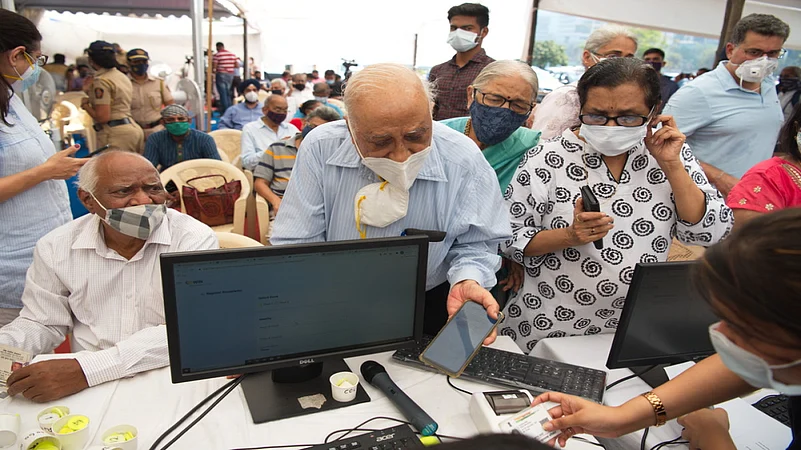The Centre is reportedly considering the option to offer a “guaranteed pension of around 50 per cent of the last pay drawn to government employees under the National Pension System (NPS)”.
The development comes in the wake of the Centre attempting to boost greater adoption of the NPS on the back of several states demanding a reversion to the Old Pension Scheme (OPS) over the last year.
Incidentally, the Reserve Bank of India (RBI) had on January 16, 2023, cautioned against reversion to the OPS, while notifying that the move would likely pose a major financial risk for the state governments rejecting the adoption of NPS.
Now, the Centre along with some state governments are reportedly considering providing guaranteed pension to government employees at around 50 per cent of the last pay drawn under the NPS as a way to “salvage the pension reforms,” according to a report by The Financial Express.
It says that this option is being considered in an attempt to take a more balanced approach towards “fiscally-expensive OPS and the reform-oriented NPS.” The Centre had introduced NPS in 2004, replacing the Old Pension Scheme.
In June 2022, the RBI had also shared its observations in a report titled, ‘State Finances: A Study of Budgets of 2022-23’ stating that the reversion to the OPS would lead to major risk on the “subnational fiscal horizon”. It would result in accumulation of unfunded liabilities in the coming years for states insisting on adapting to the OPS, the RBI had said in its report.
The RBI report was released after the governments of Rajasthan, Chhattisgarh, and Jharkhand had informed the Centre and the Pension Fund Regulatory and Development Authority (PFRDA) about their decision to restart OPS in their respective states.
According to The Financial Express, PFRDA has rejected the demand of the three states for custody of the accumulated corpus under the NPS after they announced to return to OPS in 2022.
The PFRDA reportedly notified to these states that the “law did not permit such withdrawals”, as these three states stopped fresh contributions to NPS, the report said.
The OPS offered government employees a defined pension scheme offering 50 per cent of the last drawn salary, and the pension amount was not deducted from the salary during the period of employment.
The National Pension System (NPS) is a contributory pension scheme under which employees contribute 10 per cent of their salary along with the government contributing 14 per cent towards the NPS accounts of the employees.
Interestingly, as part of its ongoing attempt to boost adoption of NPS by the state government, the Centre had in December 2022 announced several measures, which are slated to apply from this year onwards.
At the time, the government had announced that central, state government and central autonomous bodies’ employees, who are subscribed to NPS would no longer be allowed to partially withdraw from their NPS account through self-declaration.
The government has ruled out reversing the pension reforms and going back to the fiscally-disastrous unfunded OPS, which entails 50 per cent of the last pay drawn as pension from the budget to the pre2004 staff. The Financial Express further reported that, the government is, however, aware of the rising “demand for OPS amid a spate of state/general elections in 2023-2024.













